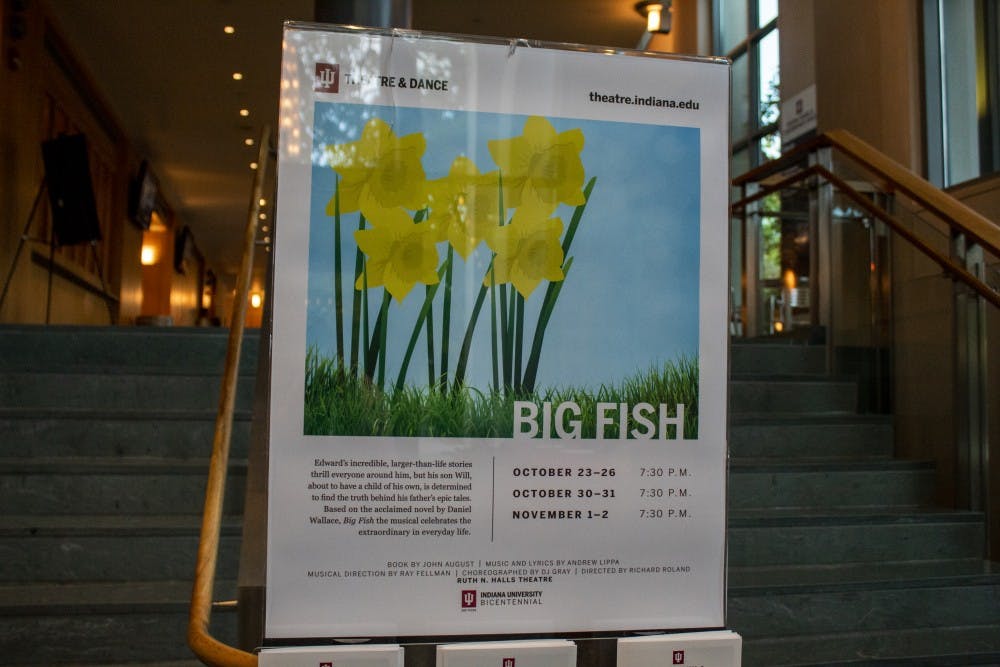Golden rays of sunlight stream through cracks of wooden paneling. Edward Bloom, donning a red-and-green flannel, comes into view and is given a tweed flat cap, glasses and a tan cardigan sweater. He continues forward, looking out into the river and skips a stone into the audience.
“Big Fish” is the second production of the 2019-20 season for the IU Department of Theatre, Drama and Contemporary Dance, showing now through Nov. 2 at the Ruth N. Halls Theatre. Tickets are $10 for students and $20 for adults.
“Big Fish” presents the imaginative, larger-than-life stories that Edward Bloom tells during his son Will Bloom’s adolescence. Years later, while Will prepares for his impending marriage and child of his own on the way, he investigates his father’s stories and the truth they may or may not hold. As Edward’s days become numbered, transitions back and forth between the past and present display the repairing of a father-son relationship and highlights the whimsy of everyday life.
Based on the book, “Big Fish: A Novel of Mythic Proportions” by Daniel Wallace, the musical came into the public eye in 2013. Screenplay writer John August wrapped up a film adaptation alongside Tim Burton, and had a longing to hear what the characters were thinking through song and dance.
IU musical theater student Ben Ballmer is responsible for examining the social and historical context of the production as a Dramaturg, which he took the role of for the first time; he explained the position as a conduit between the director and the text. Ballmer curated a resource guide that explains the importance of stories and folklore in American life, which was provided to the actors to help them contextualize the show and Edward’s stories.
As Will works to uncover the truth behind his father’s stories, his wife, Josephine says, “But does it really matter what was true? Your father is telling these stories for a reason. If you understand the stories, you’ll understand the man.” It doesn’t matter if the stories are true, Ballmer said. In Edward’s case, the exaggeration of his stories demonstrate exactly why society has shared stories for centuries and will continue to forever.
“It’s hard to imagine a world without stories — why do we invent and create?” Ballmer writes in his note in the show’s program. “Stories explain our world. They keep our history alive. They teach us moral lessons; they entertain and delight. But above all else, as Tim O’Brien argued in ‘The Things They Carried’, stories can ‘dream us alive.’”
Ballmer said the audience should sit back and enjoy the good, old-fashioned fun that goes along with seeing a story play out right in front of them and appreciate Edward’s story while they are in the room with him.
“The theatre is incredible,” Ballmer said. “It's one of the few art forms that is purely ephemeral — everything you watch onstage is happening in that moment, in that room, and will never happen exactly that way again.”




